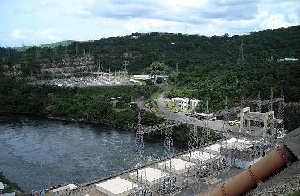The Volta River Authority (VRA), which plans to issue its first foreign bond soon, will find it hard to convince investors about its future financial prospects due to the continued under-pricing of electricity in the country, analysts at the Economist Intelligence Unit (EIU) in London have warned.
The power producer’s ability to accelerate investment in additional generation has been constrained by tariffs that are lower than the cost of production, leaving electricity demand -- estimated to be rising at 10 percent annually -- to race ahead of supply.
“Although Ghana is in dire need of increased power capacity, we have doubts about how feasible a bond issue will prove to be,” said the analysts. “A key factor here is that the VRA is unable to charge full cost-recovery price levels for the electricity it produces. If potential investors cannot see how they will be repaid without continuing government subsidies, at a time when the government desperately needs to bring down the fiscal deficit, they are likely to demand a high yield.”
The current bulk electricity tariff covers just 60 percent of the VRA’s cost of production, former chief executive Kweku Andoh Awortwi told the B&FT last month. This position is now likely to worsen after government announced a one-quarter reduction of the recent increase in the power tariff.
In October, the Public Utilities Regulatory Commission (PURC) allowed a 36 percent hike in the bulk tariff received by the VRA against the latter’s request for a 128 percent rise. The regulator also raised the end-user tariff paid to the Electricity Company of Ghana (ECG) by 78.9 percent, and pledged to introduce the automatic adjustment formula -- a mechanism for periodic, marginal adjustment of utility tariffs to set them in line with movements in production costs -- to help the utilities crawl back to cost-recovery levels.
But government on Sunday announced a 25 percent reduction in the increase following threats of a nationwide strike by workers, promising to absorb the GH?400million cost the decision will impose on the utilities. However, this cost which is being treated as a subsidy could further strain the VRA and other utilities’ finances -- especially if the refunds are unduly delayed as in the past.
Until their adjustment in October, power tariffs had been frozen since the last quarter of 2011. During this period, higher fuel costs, the loss of value in the cedi, and problems with natural gas supply from Nigeria led to a chain of losses at the VRA and the Electricity Company of Ghana (ECG).
These companies in turn relied on heavy subsidies from government to keep their operations running; but the subsidies were not always received promptly, and by the end of 2012 government owed VRA, ECG and the Northern Electricity Distribution Company (NEDCo) a total amount of GH¢421million, according to Finance Ministry data.
The International Monetary Fund (IMF) and several economists have been urging government to end energy subsidies to improve the financial health of the utilities and bolster its attempts to cut the large 2012 budget deficit of 11.8 percent of GDP.
A potential failure to attain key fiscal targets in 2013, including cutting the deficit to 9 percent of GDP, saw Fitch -- the credit-rating agency -- downgrade Ghana’s sovereign debt rating from B+ to B on October 17.
The downgrade, coupled with concerns over the brisk rise in the public debt, could be another factor dampening the attractiveness of a foreign bond by the VRA -- given that the debt would almost certainly be guaranteed by the state and so would add to the national debt, the EIU’s analysts argued.
“Although we do not expect debt-service problems in the next few years, debt is getting to levels that could imply distress in the future unless higher economic growth is recorded,” said the analysts.
Business News of Tuesday, 12 November 2013
Source: B&FT













